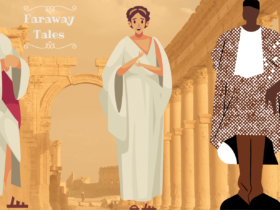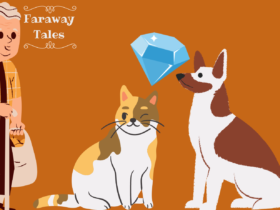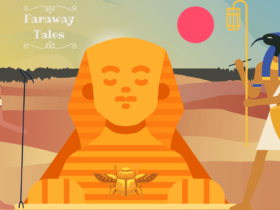|| A Turkish folktale – Eid Special ||
Near the Bayezid mosque in Istanbul, there lived a Hodja (learned, wise man). He was very knowledgable of the Quran and taught many young pupils. He was known to identify from a glance how long a pupil would take to learn a quarter of the holy book.
He taught like this for many years. One day as he was reciting from one of the chapters, ” And he that spends his money in the ways of Allah…and Allah giveth twofold unto whom He pleaseth.”, he suddenly paused. He couldn’t believe that he never registered the meaning of this sentence. Whatever you spend for Allah, he gives back twofold.
A thought occured to him. He dismissed his class and counted all his savings. It was about 500 paisters. He thought, “If I spend it according to Allah’s wishes, I will be owed no less than thousand paisters. Mashallah! A fortune!”
So the next few days he set out. He distributed all his savings and food to the needy and poor he met on the streets and helped anyone in need.
When he returned home, he was penniless. He survived for two days on whatever food was left. The next two days, he suffered from hunger pangs and lamented his fate loudly. What sin had he committed? What great wrong had his ancestors done, that the wrath of the Almighty had thus fallen on him?
To make matters worse, he heard the cry of the Fakir Dervish. In those days, Fakirs were seers who used to beg for food door to door. If you refused them, bad luck would befall you. And Hodja had no food to give him. Fakir Dervish was feared by all in the city. So he fled the house.
He went some distance and despite his age, managed to climb a tree. To his misfortune, after sometime, the Fakir came and sat under the very tree that Hodja was hiding.
The Fakir sighed and said, “Oh Allah, Oh God, where are you? Why is the world unfair and full of suffering ?”
So saying, he took out a small clay figure from his bag and spoke to it, “Allah, you are the one, the most merciful. But how did you create a world like this. A world with so much suffering, people die everyday, men, women, little kids. You tell them to believe in you, but they suffer in hunger and disease” and he raised his arm preparing to smash the clay figure to the ground.
The Hodja forgot his fear and shouted from the top, “Wait! Don’t break him! He owes me a thousand paisters!”. The Hodja was shocked, why did he call out so impulsively! Now he must pay the price.
The Fakir turned around to the source of the sound and in the moment fell senseless to the ground. He didn’t stir.
The Hodja was apprehensive. He first threw some twigs on the motionless body, then his shoe. When the man didn’t wake, he climbed down and saw that the Fakir must be dead. Nothing can be done now.
Hodja thought he would take some of the Fakir’s clothes and his bag and sell them to get some food. He was really starving!
He removed the Fakir’s coat and shoes and took his bag. The bag was heavy. He looked inside and saw there were exactly a thousand paisters.
He looked to the heaven and murmured a silent prayer of thanks. He got what he was owed.
Like (0)







Leave a Reply